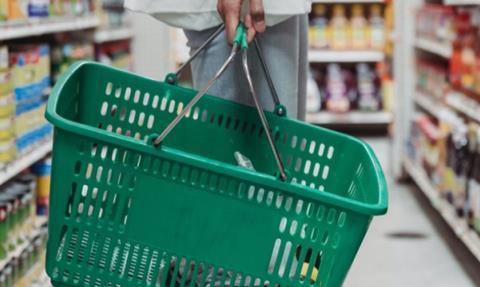The latest Kantar figures reveal that inflation remains a challenge for the food sector and like-for-like grocery prices rose by 8.3% over the past month, up 1.3 percentage points in May to reach their highest level since April 2009.

Fraser McKevitt, head of retail and consumer insight at Kantar, said that the increase in spend showed “just how sharp price increases have been recently, and the impact inflation is having on the sector.”
Supermarket sales fell by 1.9% during the 12-weeks to 12th June 2022, which according to Kantar, still marked the best market performance since October last year.
Over the latest four-weeks sales grew by 0.4% versus the same period in 2021.
McKevitt continued: “The sector hasn’t been in growth since April 2021 as it measures up against the record sales seen during the pandemic. However, these latest numbers show the market is to an extent returning to pre-Covid norms as we begin comparisons with post-lockdown times.
“The inflation number makes for difficult reading and shoppers will be watching budgets closely as the cost-of-living crisis takes its toll.”
Buying patterns change
Kantar’s analysis shows that consumers are taking steps to manage rising prices at the tills. McKevitt explained: “Shoppers have swapped branded items, which have declined by 1%, for own-label products. Sales of these lines, which are often cheaper, have risen by 2.9%, boosted by Aldi and Lidl’s strong performances, both of whom have extensive own-label repertoires.”
Store footfall jumped by 3.4% over the latest four weeks, while online fell to its lowest proportion of the market since May 2020 at 12%. McKevitt said that online sales have been declining since the end of the pandemic. This is the twelfth month in a row they’ve been in decline and digital orders fell by almost 9% in June.
Sales during the week of the Platinum Jubilee (to 5th June) were £87 million higher than on average in 2022. McKevitt explained that despite the rising cost of living, the British public “got into the jubilee spirit.”
Market analysis
Lidl was once again the fastest growing grocer this period, pushing its sales up by 9.5% over the 12-weeks to reach a 6.9% market share.
Sainsbury’s now holds 14.9% of the market, while Asda has 13.7% and Morrisons 9.6%. Convenience retailer Co-op accounts for 6.2% of sales and Waitrose holds 4.8%.
While it didn’t achieve year-on-year growth, Tesco out-performed the total market to nudge its share up to 27.3%.
This story was originally published on a previous version of the Meat Management website and so there may be some missing images and formatting issues.












